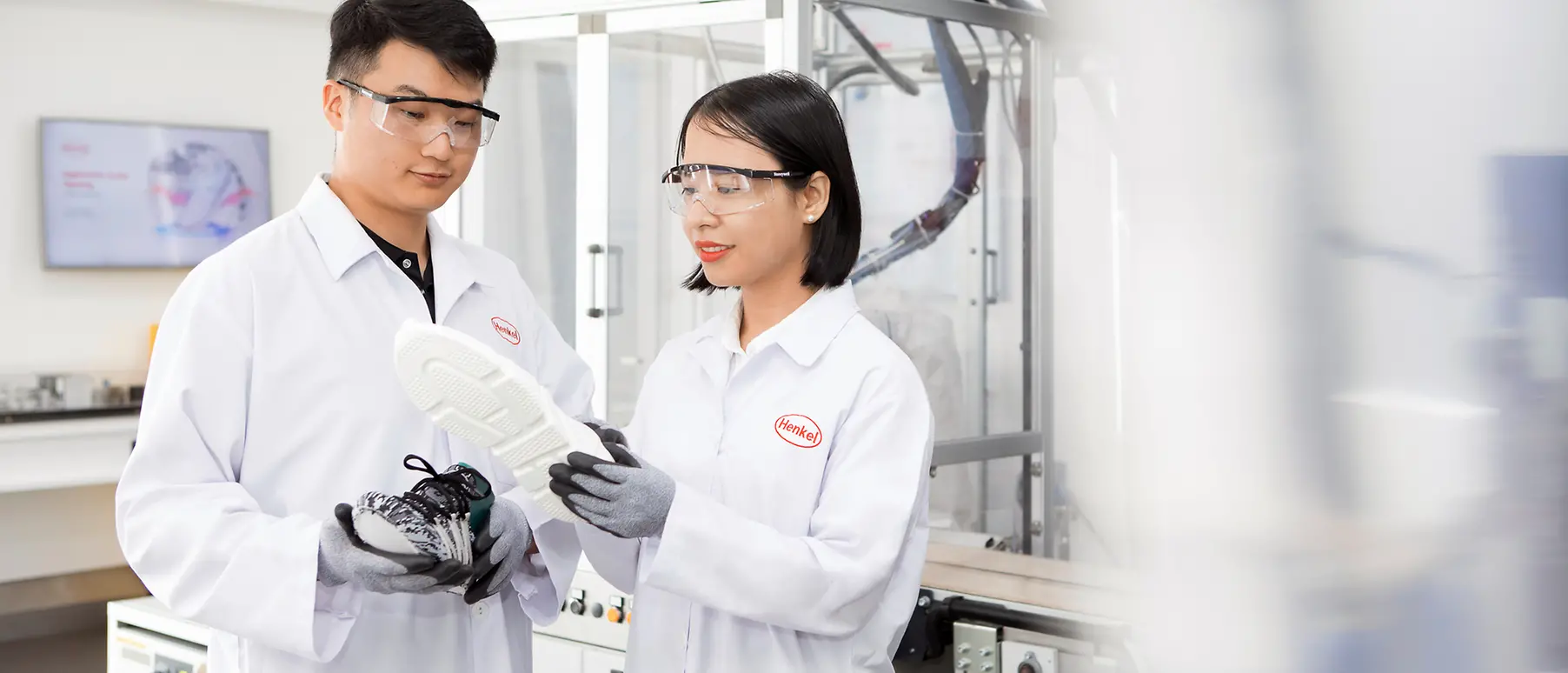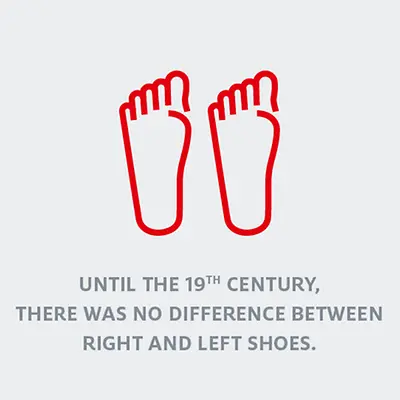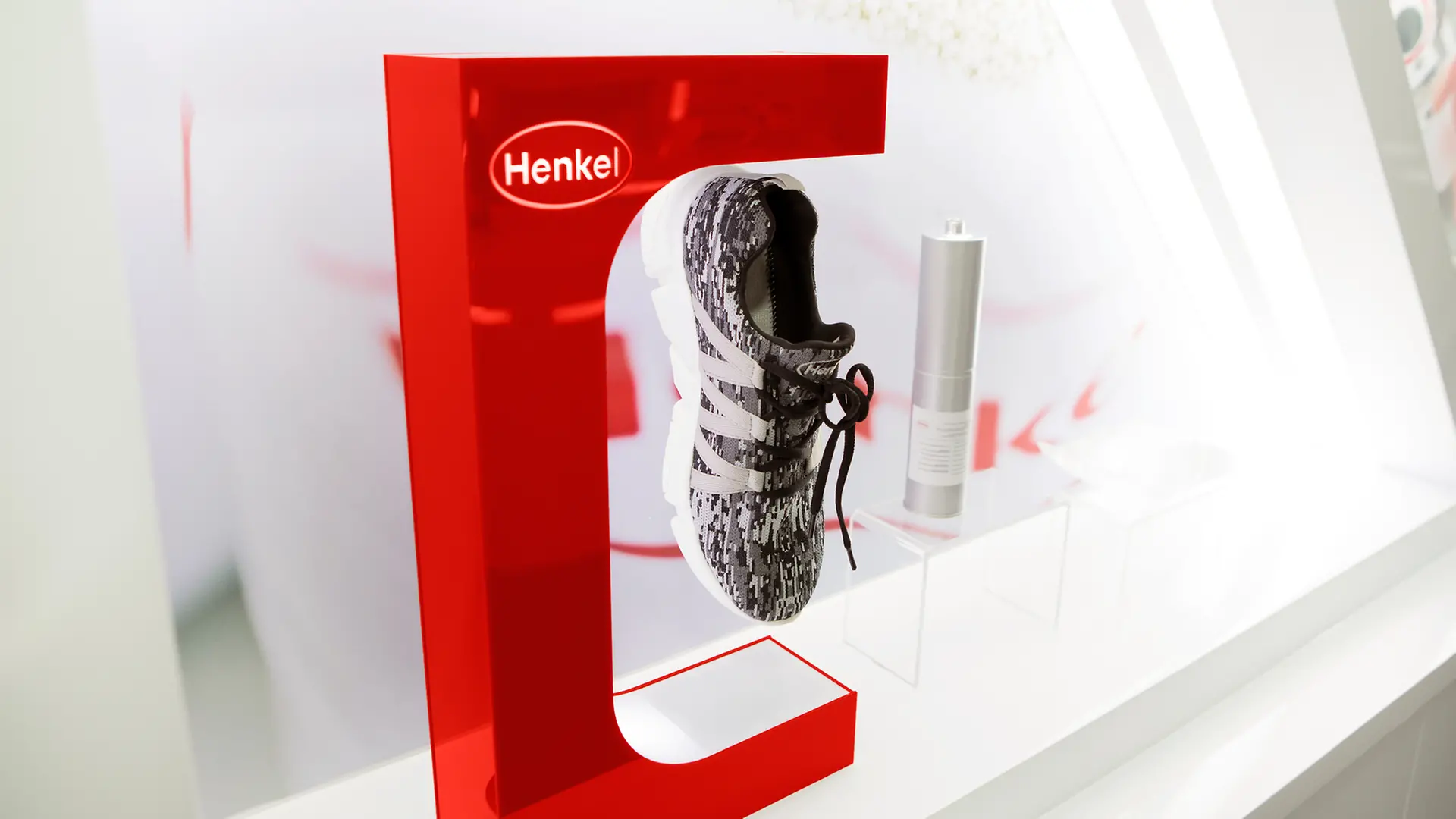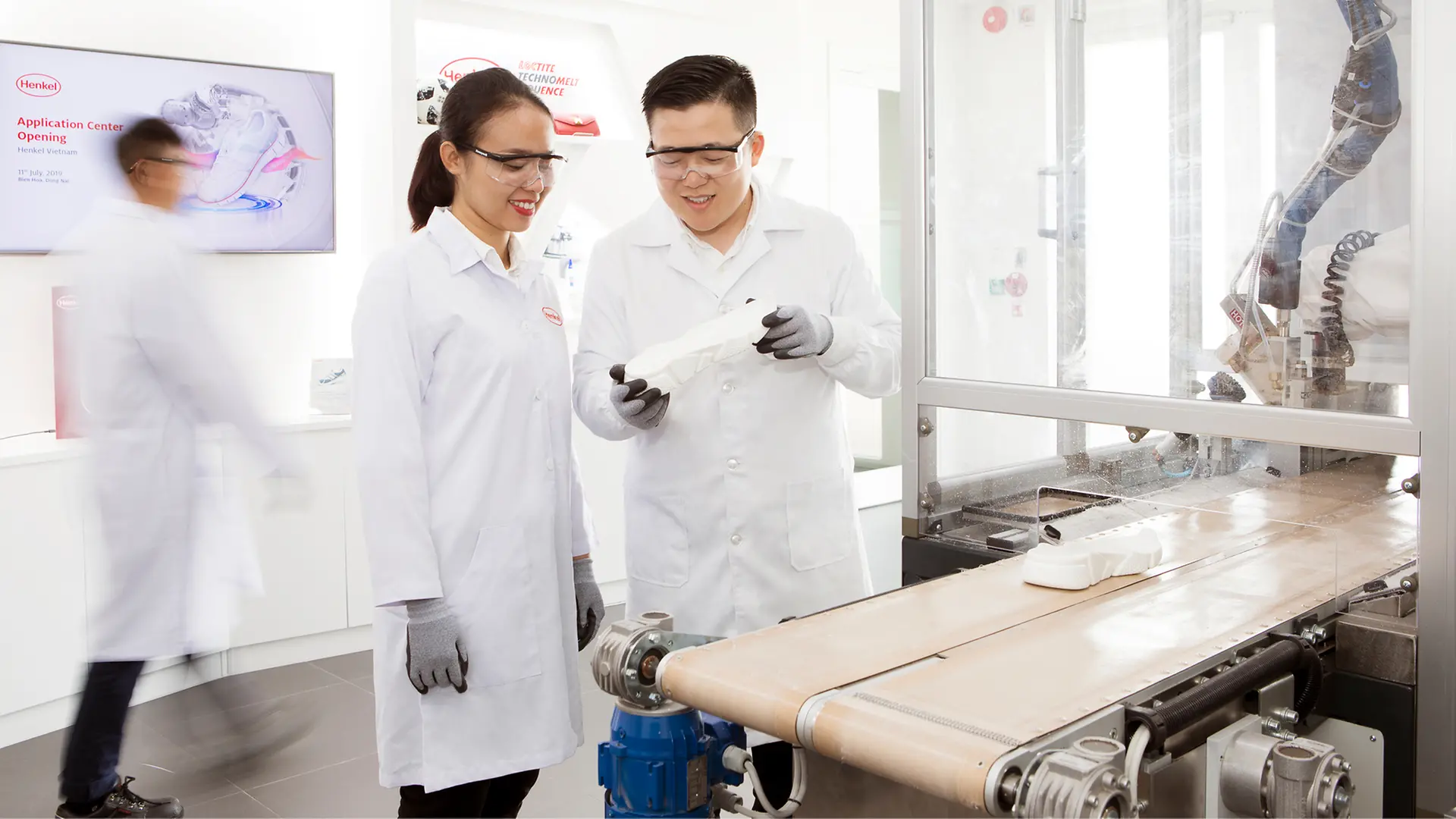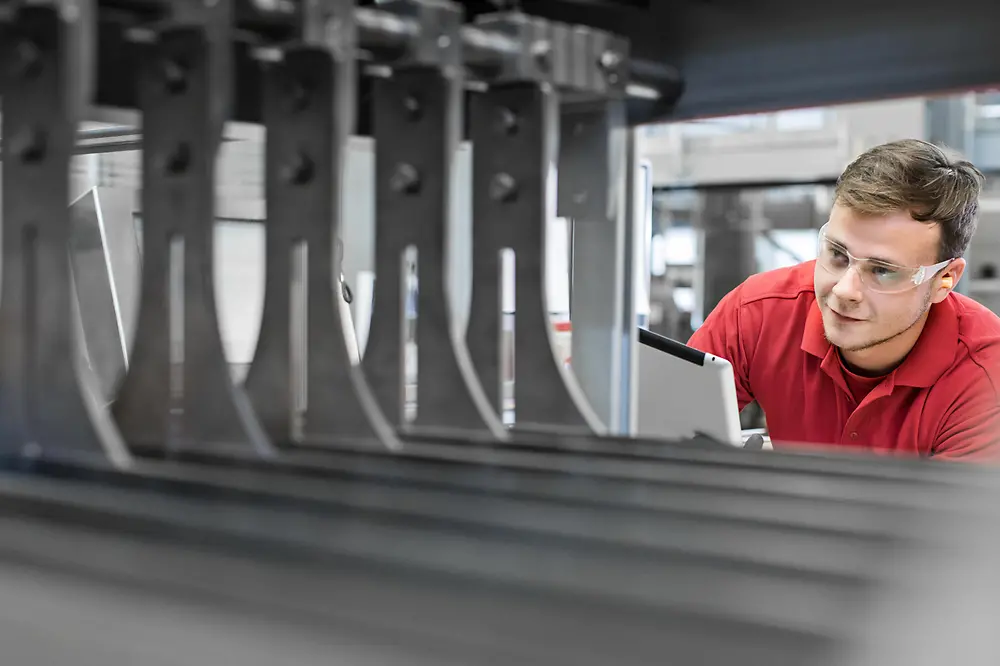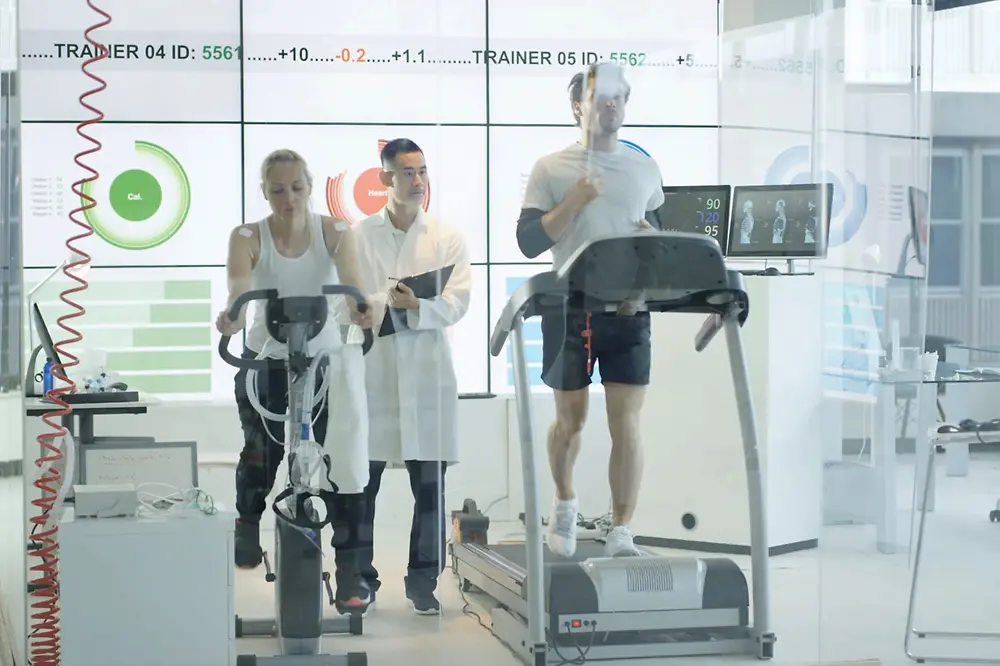Vietnam is the global exporter of branded footwear. Manufacturers there rely on Henkel technology, especially for high-end sneakers. The company enables the automation and simplification of their complex production processes with new adhesive solutions and thereby helps them increase their productivity and quality.
First the feet would be measured, their shape outlined, and then a pair would be “built” by hand using individual strips of material: well into the 19th century, shoes were entirely custom-made. Only with the rise of industrialization did it eventually become possible for people to buy them in standard sizes from a shop. Since that time, the global market has grown steadily.
Today, the most in-demand designs are high-end sports shoes, because they are no longer confined to the realm of the gym or the daily jog. Stylish sneakers have now become acceptable to wear in everyday life, to the office, and even with evening gowns and suits. These models are increasingly made in Vietnam. Alongside electronics, footwear is a top industry in the country’s national economy and the southeast Asian nation has become the biggest global exporter of brand-name sneakers.





